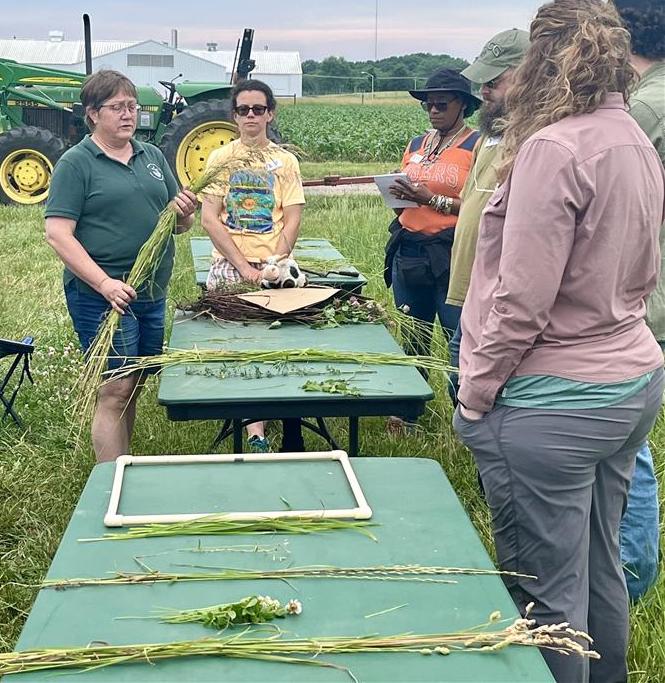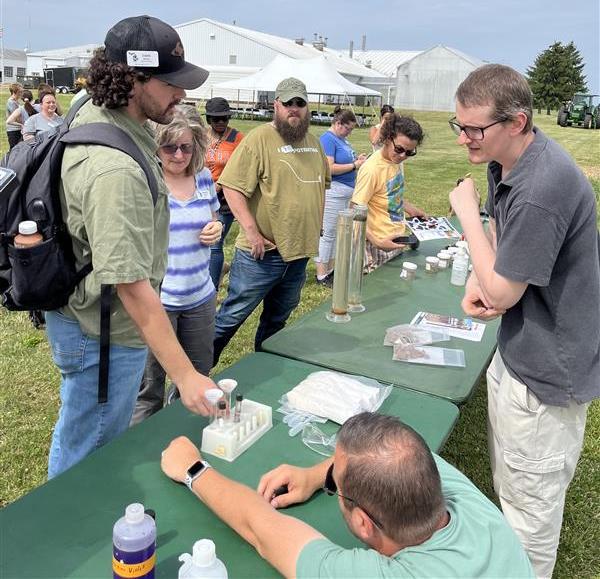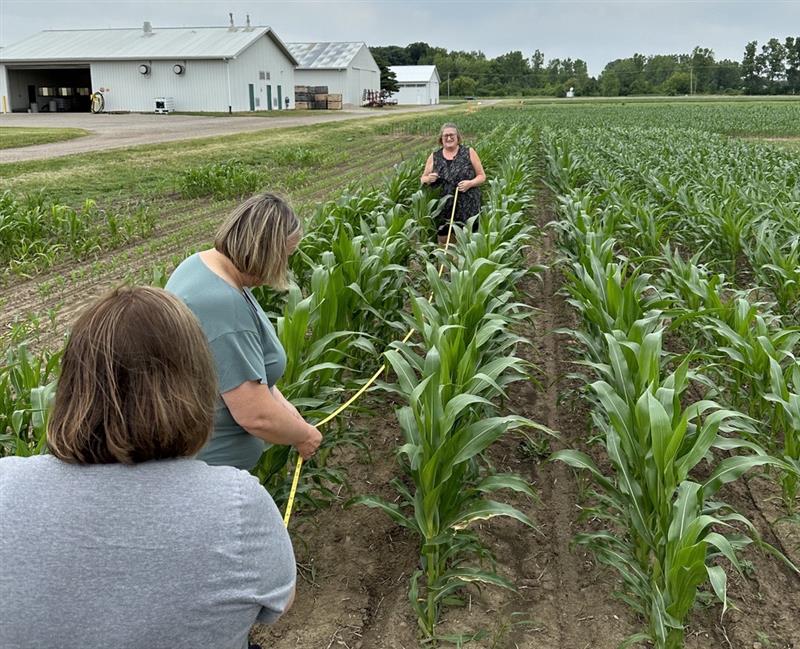MSU faculty turn the farm into a classroom
Science teachers visit MSU to learn STEM principles from PSM educators


EAST LANSING, Mich. – Teachers from across the state of Michigan gathered at Michigan State University to learn from MSU College of Agriculture and Natural Resources faculty how to best incorporate agriculture and dairy farming principles into STEM teaching curriculum.
The three-day learning event (Michigan NGSS On the Farm STEM Dairy Immersive Experience), sponsored by The United Dairy Industry of Michigan, is designed to introduce teachers and students to the foundational principles and skills that connect agriculture with STEM learning.
“This program allows MSU experts to put into context the way agriculture and dairy sciences overlap with basic biological and scientific principles,” said Craig Rebich, a senior learning strategist for Vivayic, Inc., developer of large-scale custom learning initiatives.
“It’s vital to develop the next generation of agriculture and dairy professionals, and that development starts with introducing agriculture at a young age to develop interest and getting our teachers exposed to agricultural processes, to help teach those STEM principles,” said Rebich, who helped develop and facilitate the On the Farm event with learning analyst Angela Gulotta and their team at Vivayic.
The On the Farm immersive experience is designed to target The Next Generation Science Standards (NGSS) for district curriculum directors, administrators, and science educators to learn the science of dairy and also earn continuing education credit hours.

In its second year, the program seeks to build a collaborative model for science learning that will inspire students to take action and feel empowered to use agriculture to improve their communities.
Middle school and high school teachers learned the basics of forage and row crop farming, soil health and weed management and how various STEM disciplines are used in farming during a tour of the MSU Agronomy Farm. Teachers expressed their biggest concerns about their students’ lack of understanding of how food gets to their plates.
“This helps me answer my students’ questions about where their food comes from and additionally connect them to the process,” said Tasja Bovee, a culinary health and sciences teacher at Lincoln King Academy in Detroit. “Your food doesn’t just show up at the grocery store. There is a process and a lot of thought, labor, and care put into everything that you eat.”
MSU Department of Plant, Soil and Microbial Sciences faculty members Erin Burns, Kim Cassida, Maninder Singh, and Barret Wessel showcased the variety of ways STEM principles factor into their research, teaching and outreach and demonstrated how farm techniques can be used to educate and engage students.

Kayleigh Schneider, a sixth-grade science teacher from Kalamazoo attended to gain new insights and activities she could use in her classroom.
"What I appreciate about this event is that we're doing things that can be done right in our schoolyard. These are hands-on applications that are practical and relatable to students’ experiences. It helps connect curriculum to real life for them,” Schneider said.
Gulotta emphasized the event’s role in offering educators an opportunity to deepen their understanding of agriculture and dairy-related curriculum in a way that would also generate exciting, novel and interesting interaction with students.
“The key takeaway is having teachers equipped to do phenomena-based learning in their classrooms,” Gulotta said.



 Print
Print Email
Email




